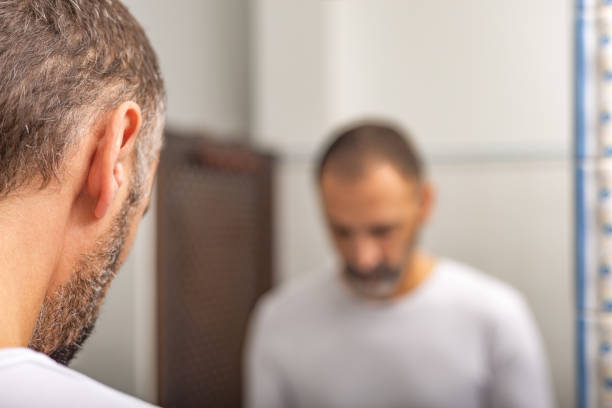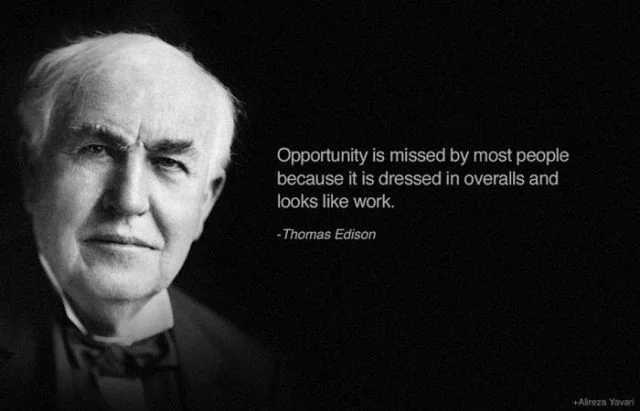Isn’t it interesting that, time and time again, death comes as a surprise?
One could argue that it’s really the only guaranteed thing in life; the death rate for humans is 100%. We all know it’s coming, but we still manage to take most days for granted. Death is perhaps the most significant and vital transition we will ever make, and yet we don’t spend much time planning or preparing for it. Think of all the time we allot for planning and preparing to get out of the military, for moving into a new home, or for a wedding day. We are so intentional and deliberate when planning for these times of change in our lives – we know that the less prepared we are for any big transition, the more anxiety we have. I think the fear of death comes from a general misunderstanding of it and a huge lack of preparation. We often have our priorities mixed up, focusing solely on the here and now when the other side of eternity awaits in our not so distant future.
Preparing for marriage is actually a great example of how we let our priorities grow overly focused on the urgent, rather than the important. In order to get married in the Catholic Church, you have to go through marriage prep courses; however, most couples are far more invested in planning for the wedding day than they are about getting ready for every day that follows. Consider this – we put so much time and so many resources into a 5-hour event, and widely choose to neglect preparing for the time, most likely decades, that fills the space between the wedding day and death. That leads many people to having an awesome 5 hours of ceremony and celebration followed by a draining and unfulfilling marriage for the next 5, 10, or even 50 years.
So it is with how we spend our lives on earth solely focused on earthly things, neglecting eternity. This comparison of a wedding and marriage here on earth to the after-life may be relevant, but it won’t ever be sufficient. A 5-hour to 50-year comparison is conceivable. A 50 year to eternity comparison isn’t possible to wrap our minds around because eternity, in a certain sense, is still a mystery to the time-bound human mind. We cannot fully conceptualize the difference between 50 years and eternity, because we cannot understand eternity.
The mystery of eternity partially explains our apathy toward preparing for it, but I think the cause is a deeper, more philosophical issue. I believe it has to do with our beliefs, or better yet, our assumptions about judgement, God, and the afterlife. Do most people go to heaven? That's a question that only makes sense to the believer.
Lacking intentionality in preparing to meet God face to face would be reasonable for the atheist. We know there is a growing trend toward atheism and away from religion in the West, but the truth is that majority of us do profess a belief in God, or at least in the afterlife. An NBC News article cites a 2016 study that showed from the 1980’s to the 2010’s, there was a significant increase in the number of people who had serious doubts about the existence of God. There was a significant decrease in those who considered themselves to be very religious. However, the percentage of people who believe in some form of afterlife actually increased. Belief in God and the afterlife are what allow us to lead a meaningful life. In The Brothers Karamazov, Dostoevsky summarizes the effects of destroying the idea of everlasting life in society,
“If you were to destroy in mankind the belief in immortality, not only love but every living force maintaining the life of the world would at once be dried up. Moreover, nothing then would be immoral, everything would be permissible, even cannibalism.”
And while an increase in belief in the afterlife is undoubtedly a good thing, this belief separate from a belief in God that is grounded in the Truth and context of the Church signifies some dangerous (and heretical) thinking.
Do Most People Go to Heaven?
Similar to my incredulity toward people's surprised attitude toward death, I’ve always been amazed at the thing that typically follows, most commonly at funerals: the assumption of salvation and heaven for the deceased. Almost every time you hear people, including many preachers, console a grieving family or friend, they assure them that the person who has passed is now "in a better place". I don’t mean to be a downer, but is it remotely possible that this is really true for every person? From a biblical perspective, it seems clear that not every person goes to Heaven. In Matthew 7:13, among other places, Jesus Himself confirms this, “for the gate is wide and the way is easy that leads to destruction, and those who enter by it are many. For the gate is narrow and the way is hard, that leads to life, and those who find it are few".
I think this is a very important, but often forgotten, truth: Heaven and Hell both exist and there are likely many, many people in both places. To me, this truth isn’t meant just to scare us into going to church on Sunday or to repent of our sins strictly out of fear, but to move us to be bolder and more courageous in sharing our faith with others and to live holier lives ourselves.
The problem with assuming that everyone we know gets into Heaven is that it generates lukewarmness of faith in our own lives. After all, we usually knew the people whose bodies lie in the caskets at funerals. We knew their strengths and their weaknesses. We are, by nature, judgmental creatures. These ideas combine to make us think that if a person, who in some instances we know was heavily disengaged from their faith life by all knowable standards is assumed to have made it into heaven, then we also can be saved by doing the bare minimum of subjectively "trying to be a good person".
Admittedly, we can’t know the inner workings of someone’s heart, and we are certainly not the ultimate judge of who is saved and who is not. Therefore, I’m not championing that we loudly proclaim at a funeral that the deceased won’t make the cut into heaven, the point is that we just don’t know. The uncertainty is tremendous. And it's okay to express hope rather than conviction when talking about the deceased's eternal destination.
The Catholic response to this ambiguity is just another reason that I love being Catholic. In a video by Fr. Mike Schmitz on this topic, he states that we typically have three major reasons for wanting to attend a funeral: to say a final goodbye, for closure and grieving, and to celebrate the life of the person. But these are each contrary to the main purpose of a Catholic funeral. The reason we gather is to offer the sacrifice on the mass on behalf of the person who has passed away. The main problem with assuming someone is in Heaven is that we fail to pray for their salvation and for their soul in purgatory. Hope moves us to action through prayer and sacrifice on their behalf while conviction leads us to wrongly assume that the work of salvation is complete.
I’ve noticed this in my own life as well. Many times when someone dies, I’m asked to pray for the family. While the family is certainly in need of prayers and God’s love, our main focus should be praying for the soul of the individual who died, asking for their salvation, and offering sacrifices on their behalf.
The same is true when someone is in the process of dying. The focus of most "thoughts and prayers" are for the recovery of the sick and for peace in the hearts of grieving loved ones. Both of these things are good desires, but they are not the most pressing need. Praying for the continued conversion and work of salvation to be brought to its completion is by far the most important thing you can do in such a situation.
Fr. Mike makes another interesting point. We are often told that we shouldn’t judge people while they’re on earth, but we are quick to judge them once they leave this world by declaring where they will spend eternity. Canonizing (i.e. making the person a 'saint' by declaring with certainty that they are in heaven) the person who died is not the role of family or friends, and certainly not the purpose of a funeral. This happy go lucky idea of not judging others unless it’s pleasant and convenient comes from a few flawed, yet mainstream, beliefs:
Belief #1: God doesn’t really send people to hell
One of the most deceiving and misleading teachings circling around in Christianity today is that hell and the devil do not exist. I do understand the difficulty of reconciling an all merciful and all loving God with this concept of hell, but I don’t understand how you can profess to believe the Holy Bible and the teachings of the Catholic Church yet say that hell doesn’t exist or that it exists but is empty.
Now, many of you may think that I’m exaggerating this problem. Not that many people actually doubt the existence of hell or believe that it is empty. You might be able to convince me that few people actually outright state that belief, but isn’t it obvious that we don’t believe in it based on the way we live? In our personal lives we often demonstrate this belief by having a passive or lazy approach to developing our relationship with God.
In our evangelization efforts, I think it’s even more common. Do you share the Gospel with people as if their eternity depended on it? Or do you tend to be more focused on preserving your relationship and your reputation by avoiding what could be a “touchy subject”?
Further, do most Christians go to Heaven? I guess it depends on the definition of “Christian.” We know the Catholic Church does not teach the popular evangelical maxim that you are “once saved, always saved.” If to be Christian is to be a member of the Church, that is the Body of Christ, then presumably yes, all Christians would go to Heaven where they continue this incorporation as a member of the Body of Christ for all eternity.
However, that is quite different than saying every person who claims to be a Christian is going to Heaven. Contrary to popular belief, simply stating something does not automatically make it true. You can claim to be something you are not, but that doesn’t change reality. The Church believes that everybody who is in a state of grace and has not cut themselves off from God through mortal sin at the point of their death goes to Heaven. A plain reading of the New Testament confirms that many believers and baptized Christians will abandon the faith and thereby likely forfeit their own salvation through their beliefs, words, and actions.
Belief #2: Ignorance is a free pass
Another common objection to hell is the hypothetical (although probably common for most of Church history) situation of someone who never gets exposed to the faith and dies without ever getting baptized or professing belief in Christ. It’s a good question and an interesting one to discuss. But it’s utterly irrelevant to the vast majority of people alive today. Jesus said, “The harvest is plentiful, but the laborers are few. Pray then to the Lord of the harvest that he will send more laborers into the harvest” (Matthew 9:37). The harvest around us is certainly plentiful each and every day. We are not interacting with people who have no access to information about Jesus. In modern day America, essentially every person has access to free resources about anything and everything. I must drive past 12 churches on my ten minute commute to work. The people you know who are unbelievers or disengaged in their faith are not that way because they are deprived of the opportunity to learn the truth. This ignorance is most frequently a result of choice. And while we can’t save everyone, we do have an immense responsibility to lead people closer to God and his Church through our prayers, words, and actions.
The well-formed Catholic might ask how the idea of ignorance applies to Protestants, Mormans, Muslims, and people of other various religions. After all, you may recall the old Latin phrase, extra Ecclesiam nulla salus, i.e. "outside the Church there is no salvation." This is an infallible teaching of the Church, meaning Catholics must accept this as the truth.
I’ve recently done a lot of thinking on the topic of non-Catholics being saved. I’m currently reading Will Many be Saved? By Ralph Martin, who is one of my favorite Catholic authors. He argues that Vatican II did in fact make some adjustments to the way the Church now views our “separated brethren” (referring to Protestants) and that those changes were needed based on new context after the passing of several centuries. After all, it is quite different to be raised Lutheran in Minnesota today than it would have been to choose to leave the Catholic Church follow a schismatic Martin Luther in the early 16th Century when the Protestant Reformation first began.
The idea is that those who were raised believing forms of Christianity that lack the fullness of faith found only in Catholicism are not as culpable as those who initiated the breaking away from the Church in the first place.
The problem we have today, as Ralph Martin repeatedly stresses, is that so many leaders in the Church promoted the idea that salvation for Protestants, as well as members of other non-Christian religions, was not only possible, but actually probable.
This I believe is the root of the first issue I named - the assumption of salvation. This “salvation optimism” permeated the Church and has become extremely popular in so many Protestant denominations who teach a watered down Gospel and a nice, always tolerant caricature of Jesus.
I believe there are two main attractions to this lie. The first is that it gives us false security that we can go to Heaven no matter what we believe and regardless of how we live. Why strive for sainthood when mediocrity will take you to the same location for all eternity? It allows us to choose lukewarmness and apathy rather than self-denial, repentance, and dependence on God.
The second attraction is that it presents a wholly acceptable option to neglect evangelization. There’s no need to have those tough conversations about getting married in the Church, living chastely, abortion, etc. if you believe your ideological opponent is guaranteed a spot in heaven regardless of what they believe and do.
Ultimately, it gives us the excuse to ignore the command of Jesus Himself to make disciples of all nations, especially disciples who know and follow His commands. Rather, operating on these false beliefs, we can simply make disciples who are warm to the idea of Christianity and think highly of Jesus as a good teacher and positive influence.
Belief #3: Just be a good person
We have this vague belief floating around today that if you are just a ‘good person’ you will be good to go in the long run. That’s ridiculous. The idea of a “good person” has as many definitions as there are people who claim to be one. Almost everyone fancies themselves a good person, even some serial killers and dictators.
According to our faith, getting to Heaven requires more than avoiding being a horrific human being. It’s typically the holiest among us who identify themselves more as a sinner than a saint. Why is that? Because the closer you get to the light of Jesus, the darker you find yourself to be. When compared to true perfection, you find yourself to be small, wretched, and hopeless without His mercy and love. Conversely, when we are far from God, we tend to compare ourselves to the most evil among us, and we shine in this juxtaposition with Hitler and Stalin. People truly think that because they are not committing grotesque sins on a daily basis that they are deemed ‘good' in the eyes of God.
This conclusion doesn’t come from any sort of logic; it simply flows from laziness. People who don’t want to change or put effort into their spiritual health are quick to lower the standards that we are called to. You see this happen as many churches today drift further and further from the fullness of the faith that Jesus originally intended for us. People reject absolute truth or high standards because it challenges them to actually live their lives differently. And even those of us who are engaged members of the Church often fail to live our lives with enough conviction, joy, and zeal to actually make them give faith a chance. I think one of the main causes of this problem is that we fail to remember death.
Remember Death
Memento Mori is a Latin phrase that means “remember death.” As Fr Mike explains, the meaning is actually two-fold. It serves as a reminder of our impending death, but also serves to call to mind the fact that we have already died to sin through Baptism and are risen to a new life in Jesus Christ. The phrase used to be extremely common among Catholics. At times it was even used as a greeting. One of my best reminders of death comes when I’m on a plane that is about to land. I always think of just how little a mistake could cause us to crash. No, this thought doesn’t invoke fear and anxiety. Instead, it causes me to evaluate my life up to this point:
Am I happy with how I’ve lived?
Am I happy with how people would remember me?
What would my eulogy sound like?
Who did I not reconcile with who could be left feeling empty and without closure?
Do people know how I feel about them?
Do they know how grateful I am for what they’ve done for me?
Have I done my best to know Jesus and to make Him known?
I come off each flight motivated to live my life. For many, though, the thought of death doesn’t bring about inspiration to live life to the fullest. Instead, it draws, from within the deepest parts of their being, serious fear, worry, and anxiety. I know that in my own life few things give me more anxiety than procrastinating on something vitally important. I believe that a lot of anxiety and depression comes from not having a proper understanding of death along with a lack of preparedness for it. Think about how hard it would be to near the end of a life you know you are currently wasting.
Most of us fall somewhere in between one of two categories:
1) Knowing God exists and striving to live completely for Him
2) Knowing God exists and ignoring that fact, distancing ourselves more and more from Him with each passing day
Many people unknowingly move closer and closer to that second category. For almost a decade now, I have been intrigued by what I now know is many Catholics' misinterpretation of Church teaching in their neglect for evangelization stemming from their lack of concern about their own salvation or the salvation of others.
Ralph Martin continues to address the Vatican II documents in a way especially interesting to me; one such point is the following:
“All children of the Church should nevertheless remember that their exalted condition results, not from their own merits, but from the grace of Christ. If they fail to respond in thought, word and deed to that grace, not only shall they not be saved, but they shall be the more severely judged”
And yet another quote reads:
“Whosoever knowing that the Catholic Church was made necessary by God through Jesus Christ, would refuse to enter her or remain in her could not be saved”
It seems like most holy men and women have believed that we really underestimate the culpability of those who willingly choose to be ignorant, as St. John Chrysostom points out:
“One should not think that ignorance excuses the non-believer…When you are ignorant of what can easily be known, you have to suffer the penalty…When we do all that is in our power, in matters where we lack knowledge, God will give us his hand, but if we do not do what we can, we do not enjoy God’s help either…
So do not say: ‘How is it that God has neglected this sincere and honest pagan?’ You will find that he has not really been diligent in seeking the truth, since what concerns the truth is now clearer than the sun. How shall they obtain pardon who, when they see the doctrine of truth spread before them, make no effort to come to know it?...
It is impossible that anyone who is vigilant in seeking the truth should be condemned by God… ‘but how is it,’ you ask, ‘that they have not believed?’ It is because they did not wish to. And yet Christ did his part on their behalf; his passion bears witness to that.”
The line that hit me especially hard, because of my constant struggle with this very question, was the following:
“But how is it” you ask, “that they have not believed?”
It is because they did not wish to.
A great fictional depiction of this choice can be found in C.S. Lewis’ work The Great Divorce.
He does an amazing job of showing that people really do choose hell for themselves rather than being arbitrarily sent there by God. Many people, despite access to so much information and ability to seek the truth, decide not to do so.
Others know the truth and choose to reject it anyway.
____________________________
How We View Death, and in turn, Heaven
Peace, hope, and joy are virtues that come through grace. When our life has no meaning or greater purpose, when we lack the love of God in our lives, what else is there but sadness?
Matt Walsh explains it well in his new book Church of Cowards,
“We are told that despair – or depression, as we call it today – is a mental illness. But how can we call someone ill for being in despair when he has so many good reasons for that despair. . .We do nothing for a despairing man by numbing his sadness while leaving him to his empty, miserable existence. . . Life moves always on to death. Every step we take is a step closer to it. If death is a plunge into nothingness, if it is the cessation of all being, then what is there but despair?”
We are called to draw people out of that despair. One of the necessary marks of a Christian is hope. This hope, when fully present, doesn’t allow for there to be fear of death. We have hope in God’s mercy and goodness, trusting that our wholehearted pursuit of God’s presence here on earth will be finally made fully possible in heaven. Contrast Matt’s description of the unbeliever’s despair, life and the view of death with C.S. Lewis’ view of the afterlife for a believer in Till We Have Faces,
“The sweetest thing in all my life has been the longing – to reach the Mountain, to find the place where all the beauty came from – my country, the place where I ought to have been born. Do you think it all meant nothing, all the longing? The longing for home? For indeed it now feels not like going, but like going back.”
Death is our journey home to worship God for all eternity.
A healthy view of death along with a serious intentionality around trying to be prepared for it allows you to be fully alive. The best athletes are those who play like it could be their last game ever. The best concerts are those where you see someone perform like it could be their last one. In a similar way, the best lives are those lived in a way that doesn’t take time here for granted. I want you to love your life and to live like it’s almost the end. This means spending time being truly present with people, forgiving people, loving others with all your heart, and being bold in your faith. It means tenaciously seeking out your purpose in life and then pursuing it with all your heart.
Knowing that there is an end allows us to understand the urgency of now. You may not understand why just yet, but God created you in this particular time in history, in this particular place, for a particular reason. Your life will go on forever, but your time here on earth is finite. The most important thing we can do in this finite time is know Jesus and make Him known.
Are you spending your limited time wisely and intentionally? I hope so, because your eternity and the eternity of many others will likely depend on it.
“Many great things depend, don’t you forget, on whether or not you and I live our lives as God wants.” –St. Josemaria Escriva

















